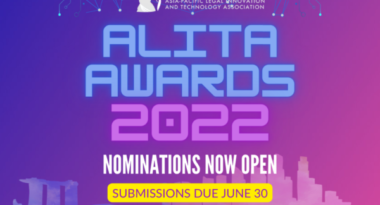The justice system, like all public services, has been overtaken in all European countries by the pandemic. COVID-19 has caught most public administration entities insufficiently prepared to offer the services and demands required by citizens. The usual volume of litigation has increased exponentially and it is expected to continue doing so in the coming months as a result of unforeseen circumstances such as the paralysis of economic activities, the forced social isolation that has increased confrontation and the questioning by some citizens of decisions taken by public authorities, amongst many other reasons.
In view of these circumstances, in most European countries the authorities responsible for justice are announcing their intention to reform their systems in order to be able to face these new challenges, viewing digital transformation as a solution to achieve this.
With more than 400 professionals from more than 30 countries, the mission of the European Legal Technology Association (ELTA) is to promote knowledge about Legal Tech and how to use it efficiently. This Decalogue aims to respond to this mission.
A working team led by María Jesús González-Espejo (Spain), Vice President of ELTA, and the following ambassadors of its network; Holger Zscheyge (Russia), Gregoire Miot (France) and Konstantinos Anagnostopoulos (Greece), have been responsible for its elaboration.
The Decalogue is mainly aimed at public officials in the administration of justice and parliamentarians, and its objective is to serve as a guide for designing future justice systems around citizens, and to deploy the most appropriate technologies to support modern and easy access to justice.
As a result of our reflections we are proposing a total of 10 guidelines, with a brief description and a concrete solution related to LegalTech to help make them effective. These are the 10 guidelines:
1. Justice with strategy
Reforming the justice system with long-term planning and a holistic vision, not with sporadic measures, based on the progressive achievement of small goals while involving all stakeholders in the design of the plan.
Proposed solutions: Creation of a record of successful LegalTech use-cases for a better justice system, which would serve as a model for justice leaders in charge of planning.
2. Justice with adequate funding and efficient expenditure
Justice systems must be provided with the necessary resources to achieve their digital goals and, at the same time, be wisely advised how to conduct efficient spending.
Proposed solutions: Creation of a European LegalTech record for justice and design of European programmes to promote the development of more made in Europe LegalTech.
3. Justice transformation or innovation in justice
Public operators should reflect on the desirability of automating existing systems or reviewing and redesigning them. It is crucial to avoid automatizing existing processes, which have already been proven to be inefficient, and instead try to redesign a new justice system to fit the requirements and needs of a digital society.
Proposed solutions: Use of methodologies such as Legal Design Thinking to review the existing systems and services and a set of regulatory sandboxes for the development and implementation of European LegalTech.
4. More and better open data for a better justice system
More legal data should be open and accessible in order to allow intermediaries to develop more legal-related solutions.
Proposed solutions: Creation of a European register of legal datasets, that allows benchmarking on available datasets by category.
5. Transparency and citizen participation
Design and evaluate lawmaking transparently, with evidence, and with the support of citizens and other stakeholders. LegalTech can help achieve a more transparent and better justicesystem while encouraging an active citizen participation in policymaking, placing citizens in the centre of the legal system and justice administration.
Proposed solutions: Identify and offer European governments, from all levels, a set of procedures and tools to foster transparency and participation in law making.
6. Talented professionals for a better justice system
It is of utmost importance to help legal professionals acquire the knowledge and skills they need in order to embrace and profit from justice innovation and to attract the right talent to work towards the goal of improving justice.
Proposed solutions: Design policies to enforce the incorporation of technical studies into public law school’s curricula, as well as mandatory trainings for lawyers, design training programs for all the stakeholders and attract innovation and tech professionals into the positions responsible for reforming the justice system.
7 Non imposed virtuality as a rule and not as an exception
The citizen’s telematic relations with the justice administration system will be encouraged whenever possible but shall not be imposed in order to avoid creating a digital gap.
Proposed solutions: Introduce the obligation of making a “digital impact evaluation” in any project related to the administration of justice.
8. More simple and accessible justice
The transformation should seek to simplify legal processes and the selected technology ought to offer a better experience to citizens.
Proposed solutions: Use of Legal Design thinking methodology to improve justice accessibility and limit the effects of legalese and, more specifically, tools such as citizens focus groups to tests new devices or procedures.
9. Citizens’ digital rights guaranteed
Citizens must understand their digital rights and be able to exercise them. LegalTech should help achieve these goals.
Proposed solutions: Design programs to train citizens on such matters and promote the use of LegalTech that is always respectful of citizens’ rights.
10. Technology based alternative dispute resolution (ADR) & online dispute resolution (ODR) should be prioritised as solutions to improve justice problems
Technology based alternative dispute resolution systems have the potential to solve conflicts in an easier, faster and less expensive way.
Proposed solutions: Identify the areas of justice where ADR and ODR could help to improve justice, modernize the regulatory framework and provide to all stakeholders of the justice ecosystem the appropriate LegalTech tools and platforms.
If you wish to know more about ELTA’s Decalogue please contact:
English: María via email or Linkedin
French: Greg via email or Linkedin
German: Holger via email or Linkedin
Greek: Konstantinos via email or Linkedin
Russian: Holger via email or Linkedin
Spanish: María via email or Linkedin











